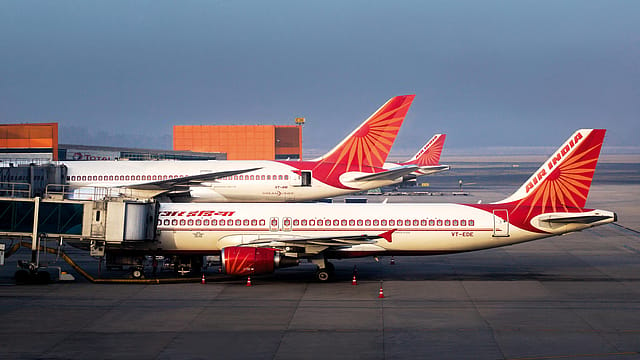Why buyers will be wary of Air India
ADVERTISEMENT

Days before the Union Budget, the government has invited bids for a 100% stake sale in Air India (AI), which has been reeling under losses and a ballooning debt. The sale includes AI’s 100% ownership of Air India Express Ltd (AIXL), a profitable international airline, and 50% ownership of Air India SATS Airport Services Private Ltd, which provides ground handling and cargo handling services at airports situated in New Delhi, Hyderabad, Bengaluru, Thiruvananthapuram, and Mangaluru.
In its second attempt at a sale, the government has sweetened the deal for buyers by absorbing almost two-thirds of the airline’s debt of ₹62,000 crore. Any potential suitor will now be buying into a debt of about ₹23,286 crore (about $3.2 billion), accrued against the purchase of aircraft that are operational.
“I’m optimistic about the sale. The government has learnt lessons from the past. They have realised that there is no future for AI if it continues under government ownership,” says Jitender Bhargava, former executive director of Air India. “The concessions that potential acquirers have been looking for have been provided.” But the question remains as to how much does the new sale proposal interest buyers? For one, the Indian aviation market has certainly become more attractive because there is one less full-service player in Jet Airways.
Ajay Awtaney, editor, LiveFromALounge.com, an Indian aviation frequent flyer website, though believes that AI is still too big for one player to digest. “They [the government] could have sliced it into domestic and international operations.” Moreover, in terms of the debt, Awtaney remains doubtful whether even $3.2 billion will pass muster. “It’s enough money for anyone to be able to start their own airline today." While the revised debt is against the purchase of operational aircraft, a closer look at AI’s fleet might make buyers wary.
Awtaney points out that the newer fleet of AI aircraft are all leased. Hence, it’s not an asset for the airline; it’s an asset owned by a lessor, for which AI is paying a lease. “The titles that AI owns are for aircraft that are at least one generation old. So when you buy AI you will get A321 aircraft which are the [older] CEO variant and not the [new] NEO variant; you get A320 and A319 aircraft that are the classic variants,” he adds. To put things in perspective, the new generation of Airbus 319, 320 and 321 NEO aircraft provides for a 15% fuel saving on every flight as compared to the older generation of aircraft. “Secondly, AI’s A321 aircraft have about 180 or 182 seats, which is what an IndiGo A320 or SpiceJet B737-800 carries. So you're packing a bigger plane with lesser capacity,” says Awtaney, who has studied AI’s proposed sale document.
Furthermore, a research note by ICICI Securities points to other challenges that exist for potential bidders of Air India such as utilisation-driven access to airport slots, and bilateral rights. The existing portfolio of international and domestic slots, including bilateral rights of AI/AIXL will remain accrued for a period of only six months from the sale. After six months, based on actual utilisation by AI and AIXL (post disinvestment), continued availability of such bilateral flying rights/slots shall be applicable, according to domestic regulations. “Hence, the successful bidder will have to take care of the debt and also ramp up operations to be able to retain all the slots and bilateral rights,” the ICICI Securities note said.
Another crucial aspect to the sale is that the government is not guaranteeing its own business to Air India. “From the Finance Bill 2009 onwards, all government employees on official business are supposed to fly AI if that option is available. Once the sale transaction of AI goes through, this clause does not apply,” Awtaney says. “And government business is not small change; we are taking about millions of dollars.” Besides, the government also mandates that the buyer retain brand Air India. That means, if another Indian carrier were to take over AI, they will be forced to kill their own brand. “I’m hoping that’s just a negotiating tactic and not something that will be pushed forward,” says Awtaney.